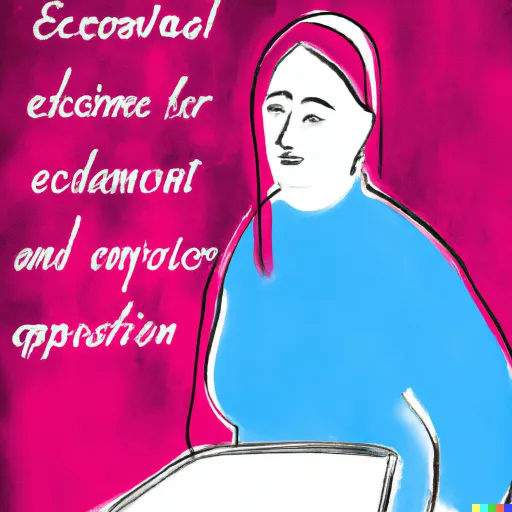Case Study: Iuliia

Overcoming Barriers: A Woman with a Disability Creates Opportunities for Education and Employment
Introduction:
Iuliia Resenchuk is a remarkable woman who, despite facing numerous challenges, has dedicated her career to creating a more inclusive and equitable society for people with disabilities in Ukraine. After suffering a spinal cord injury in a car accident that left her in a wheelchair, Iuliia used her personal experience as motivation to create positive change in her community.
Motivation:
Iuliia’s motivation to work in the field of education and employment for people with disabilities came from her personal experience as a person with a disability. She recognized the challenges that people with disabilities face in their daily lives and the need for more equal opportunities. This became her driving force, and she decided to take action to create a more inclusive society.
Support Received:
Iuliia was fortunate to have the support of her friends and family, who encouraged her to pursue her goals. She also received support from disability-related organizations and community groups, which helped her establish her organization. In addition, she received support from local government officials who recognized the importance of her work.
Objectives:
Iuliia’s organization aims to provide people with disabilities in Ukraine with opportunities for education and employment. The organization offers a range of programs and services, including vocational training, job placement, and advocacy for disability rights. Iuliia’s ultimate goal is to create a more inclusive and equitable society for all.
Barriers:
Despite progress towards creating a more accessible and inclusive environment for people with disabilities, there are still significant barriers to overcome. One of the major obstacles is the high level of architectural barriers that make it difficult for people with disabilities to move around the city in a wheelchair. Another challenge is the negative attitudes and stereotypes that exist towards people with disabilities.
Lessons Learnt:
Iuliia’s story is a testament to the power of persistence, determination, and hard work. Despite facing numerous challenges, she did not let them stop her from pursuing her goals. Her message is clear: don’t be afraid of barriers, take your time, and keep pushing forward. This lesson can be applied to anyone who wants to make a positive change in their community or achieve their goals in life.
Impact:
Iuliia’s impact on society and people with disabilities in Ukraine is significant and far-reaching. Her organization has provided education and employment opportunities to many people with disabilities and has brought attention to the need for a more inclusive and equitable society. Her experience has also inspired many people with disabilities to pursue their dreams and make a positive impact in their communities.
Conclusion:
In conclusion, the case study of Iuliia Resenchuk highlights the importance of featuring the stories of women entrepreneurs with disabilities. Her personal experience of overcoming adversity to create a more inclusive and equitable society for people with disabilities in Ukraine is inspiring. The key points of the case study emphasize the role of her organization in providing opportunities for education and employment for people with disabilities and advocating for disability rights.
The Digital Social Entrepreneurship dimension of the project is also significant as it leverages technology and innovative business models to address social and environmental issues. Iuliia’s organization has provided a positive impact on society and people with disabilities in Ukraine by bringing attention to the need for a more inclusive and equitable society. Furthermore, her experience has inspired many people with disabilities to pursue their dreams and make a positive impact in their communities.
Therefore, featuring the stories of women entrepreneurs with disabilities can inspire and create positive change in society. The case study of Iuliia Resenchuk and her organization’s work aligns with several SDGs, highlighting the importance of promoting inclusive and equitable societies for all.
The case study of Iuliia Resenchuk and her organization’s work in creating opportunities for education and employment for people with disabilities in Ukraine is connected to several Sustainable Development Goals (SDGs) set by the United Nations.
Firstly, it is connected to SDG 4: Quality Education, as her organization provides education and vocational training opportunities for people with disabilities. This goal aims to ensure inclusive and equitable quality education for all, which includes people with disabilities.
Secondly, it is connected to SDG 8: Decent Work and Economic Growth, as her organization offers job placement services to people with disabilities, promoting equal opportunities for employment and economic growth.
Thirdly, it is connected to SDG 10: Reduced Inequalities, as her organization advocates for disability rights and works towards creating a more inclusive and equitable society for all. This goal aims to reduce inequalities and promote social, economic, and political inclusion of all individuals, including those with disabilities.
Lastly, it is connected to SDG 17: Partnerships for the Goals, as her organization collaborates with various stakeholders, including government agencies, NGOs, and disability rights organizations, to achieve their objectives. This goal aims to strengthen partnerships to achieve the SDGs.
